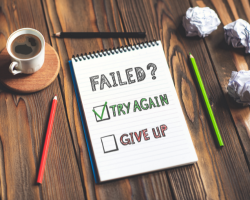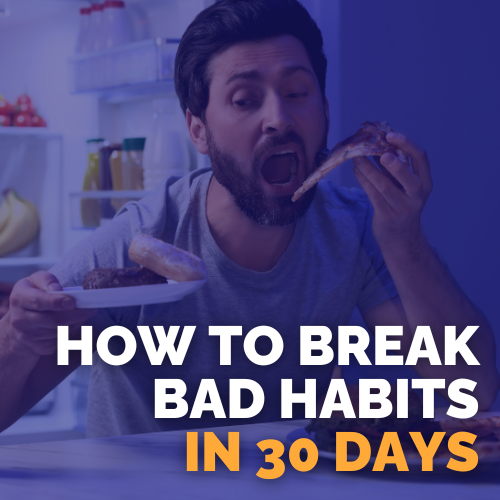 Get ready to challenge everything you thought you knew about success and failure!
Get ready to challenge everything you thought you knew about success and failure!
Can you imagine a world where failure is not your greatest fear but your most powerful tool?
No need to imagine because we’re now going to make that a reality!
In this episode of the Success Through Failure podcast, I unveil two groundbreaking concepts on failure that will revolutionize your approach to achieving greatness.
Tune in and discover how these game-changers can reshape your perspective on setbacks, redefine your path to success, and propel you towards extraordinary achievements.
Through real-life stories, expert insights, and practical strategies, I’ll guide you on a journey of discovering how failure can become your greatest teacher and springboard for success. This eye-opening conversation will empower you to break free from limiting beliefs, leverage failure as a catalyst for growth, and open the doors to unparalleled success.
Don’t miss out on this paradigm-shifting episode that will leave you inspired and ready to rewrite your own rules.
And make sure to stick around until the end because I have prepared a tool that you can use to really benefit from and create leverage from the concepts I’m going to teach you today. Don’t miss it!
If you don’t have time to listen to the entire episode or if you hear something that you like but don’t have time to write it down, be sure to grab your free copy of the Action Plan from this episode— as well as get access to action plans from EVERY episode— at JimHarshawJr.com/Action.
Download the Action Plan from This Episode Here
[00:00] I’ve been studying success through failure for years. I’ve been speaking about it. I’ve been talking about it on the podcast. And as I was preparing for a talk that I gave recently, I had a huge breakthrough that I’m going to share with you today. And not only that, at the end of this episode, I’m going to share with you a tool, a simple worksheet that you can use to really benefit from and create leverage from the concepts I’m going to teach you today.
[00:23] Now, normally this worksheet, this is what we call a discovery exercise. And is reserved for my paying clients, but it’s going to be free for you today. So stick around. Welcome to another episode of success. Through failure, the show for successful people. And for those who want to become successful, the only show that reveals the true nature of success.
[00:44] This is your host, Jim Harshaw, Jr. And today I’m bringing you a solo episode. We’re talking about two concepts around failure that I recently discovered or uncovered when I was preparing for a talk that I gave. And I’m super excited to share this with you because this has been a huge epiphany for me.
[01:02] And now I know. How to leverage failure even more so than ever before, because of this. I don’t know how I didn’t see this before, but it’s kind of obvious whenever I share it with you. And once you hear this, once you learn it, once you understand it, you’re going to have this mindset shift, this epiphany that, that you’re not going to be able to go back to your old way of thinking.
[01:21] So I’m really excited to share this with you as always, if you love the podcast, please give it a rating and a review. Even more importantly, if you can give it a share, give it a retweet, share it on your Instagram story, share it on LinkedIn, or even if you just make a comment or like it, all of those things boost the visibility of the podcast.
[01:40] So thank you in advance for doing that. All right. So what are these two concepts? What was this breakthrough that I had recently when preparing for a talk? So the talk was to just a local organization, an amazing nonprofit that does really, really great work. It’s called Camp Holiday Trails, and they have Campers come in from all over the country and they have different sort of experiences, different life experiences.
[02:04] So some of them are children who have lost a parent in war, in combat, in the military. Others are campers who have a disability, just different, different challenges, different adversities in their life. And these are the camp counselors that I was speaking to. And this was kind of during their training and I was just thinking about the failures that.
[02:25] They will experience and also the failures and adversity in the lives of the campers that they’re bringing into this experience with them. And I have this epiphany that there are two different types of failure experiences. Okay. Here’s the first one. The first one is this. This is when you go into an experience knowing that failure is possible.
[02:47] Okay. We’ll call this possible failure, a possible failure experience. Now, this is when you know that failure could actually happen and you’re almost okay with it because you know, it leads to growth or innovation or learning or improvement. And so some examples of this first type of failure. This first type of experience might be like running an experiment in a laboratory.
[03:12] You know that if you’re going to run an experiment in a lab, maybe when you had chemistry lab in high school or something like that, you know, there, there could be different types of outcomes. You don’t know failure could happen and you’re just doing this to test something out and see what happens.
[03:27] Another one might be, you know, going back to like college or your education days might be when you’re switching your major. For example, for myself, when I switched from biology to environmental science, I took a class in environmental science and I realized, yeah, this is actually the class that the major that I want to switch to, it was a test.
[03:45] Now I knew that I could maybe take that class and not like it and say, yeah, I don’t want to stay as a bio biology major, but I knew there was possible failure here. Um, same as let’s say, trying a new restaurant, it may bomb. You may be like, no, we totally don’t like this restaurant. Let’s try something else.
[04:00] We did this recently. My wife and I went out to BJ’s brew house and it was like, she didn’t like it. I liked it. We’re probably not going to go back there for a date night. Now we also tried some place called Michael’s diner. And we also tried doing like a morning breakfast date and we actually loved it.
[04:16] So we’ve been going back to this little diner right down the road and having breakfast dates and it’s really great. We knew it was an experiment. We weren’t sure if we were going to like it, but we actually really love it. Another example would be testing like a new marketing campaign for your business.
[04:30] For example, a couple of years ago, I tested a marketing campaign. It totally flopped. I lost 25, 000, which totally sucks. I’m smiling, but grimacing through my teeth right now. But. There was failures possible kind of going into it, knowing that failure is possible. It sucked. I didn’t want to experience failure, but it happened.
[04:48] And I knew that was a possible outcome. And here, here’s the best example I can give you. My son and I love to make kombucha. If you don’t know what kombucha is, it’s essentially fermented. Tea, but it has probiotics. It’s kind of this health drink. It’s so good. We love it. And so we started making it. We started brewing our own kombucha and we test out all these different flavors.
[05:09] And when we first started making kombucha, we were using like pieces of fruit and it wasn’t really carbonating that well. And that wasn’t really adding the flavor we wanted. So we started adding juice. So we tried apple cider and that kind of worked. We’ve been experimenting and we stumbled upon.
[05:25] Creating a honey ginger syrup. So we create this honey ginger syrup and like, voila, it was like amazing. And it’s like our favorite flavor, but we still test out other flavors. We tried. Cherry juice recently, and my wife loves it. I hate it. I think it tastes like medicine. we just tried in this most recent batch that’s in the fermenter right now, pineapple ginger, like a pineapple ginger juice.
[05:47] So we know that through this experiment, we’re going to find stuff that works and doesn’t work that we like and the flavors that we like and flavors that we don’t like. And we’re okay with that. We know that sometimes we’re just going to have flavors. We just don’t like, and that’s okay, right? These are all experiences where there’s possible failure.
[06:05] And this is where in business and in our careers and in our organizations, we know that innovation and growth in learning comes from these type of experiences. So. We’re giving ourselves permission to fail almost, right? Like we’re okay. You know, that failure could happen. Failure is an option. You didn’t know the phrase, you know, failure is not an option.
[06:26] Well, in this instance, failure actually is an option. This type of failure is not the problem. This first type of failure. Okay. So that’s the first type of failure. Failure is an option. We’ll call that the possible failure experience. Quick interruption. If you like what you’re hearing here and you want to learn how you can implement this into your life, just go to JimHarshawJr.com/apply to see how you can get a free one on one coaching session with me. That’s JimHarshawJr.com/apply. Now back to the show. Now there’s a second type of failure and this is unanticipated. Failure, this is where failure is not an option and you’re not okay with it because you needed this to work.
[07:14] You maybe didn’t even anticipate failure possibly happening here, and this could be, you know, going to college and failing out or failing a test. Or going into a job interview and, you know, unless it’s a long shot from the beginning, you have an expectation of getting the job, any sports competition.
[07:36] Right. Where you expect to win, especially if like you’re ranked way ahead of this opponent and you’re supposed to win. This is unanticipated failure, launching a business. If you’ve, if it fails, this is unanticipated failure. These are two totally different experiences. The first one. Possible failure. The second one, unanticipated failure, right?
[08:00] Again, the second one, unanticipated failure. There’s no permission given like internally to yourself. You’re there’s no permission given to fail. It just happens in this, this second type of failure, this unanticipated failure. It leads to doubt. It leads to a lack of confidence, lowered goals, settling for less.
[08:21] This is the type of failure that really impacts our psyche unconsciously. Most of the time where we don’t even know, and we therefore are internally unconsciously lowering our goals, settling for less and operating from a place offear or doubt or a lack of confidence in some area of our lives. Now, listen, this, you may be like, Jim, I am so confident.
[08:44] Like I’m a confident person. Yeah, great. But there’s some area where you may lack confidence or some scenario or some situation, right? Might be in your relationships. It might be in your health. It might be in your business, right? Might be around a certain type of people or a certain type of experience.
[09:04] This second type of experience, this Unanticipated failure. This is also where innovation and growth and learning and improvement can come from if, and only if you choose to view it as the first type of failure experience, a possible failure experience. This is the crux here. I’m going to share with you how to really use this in your life here in a minute.
[09:28] But, but I really need you to get this right now. This second type of failure, this unanticipated failure, the one that you didn’t foresee coming, you weren’t even thinking that failure could happen in some of these experiences. Now let’s say the job opportunity or starting a business, you kind of know failures could happen there, but, but really.
[09:45] You know, we’re, we’re talking about those, those instances where like, you know, I expect to win, I expect to succeed, or, or maybe I didn’t even know that failure could happen here. And it happened. This is also where innovation and growth and learning can come from. Just like the first testing, trying experimenting type of failure, the possible failure experience.
[10:03] Okay. We know that innovation and growth and learning comes from that. But can we apply this to these instances where. There’s unanticipated failure, because if we do, we can actually find innovation in growth and learning if we choose to view it as such as a possible failure experience. All right. So those are the two different types of experiences.
[10:26] And we want to apply the thinking that comes from this. The first one. This is growth. This is innovation. This is how I’m going to get better to the second one. Okay. Now, what am I talking about here? Let me, let me get very specific and give you some examples. I want, I want you to know what you do with this new knowledge.
[10:44] How do we make the unanticipated failure? The second one as beneficial as educational, as informative, as helpful and be okay with it. Like we are a possible failure experience. Okay. Let’s choose the kombucha example, right? Where failure is an option. We can test a new flavor and we know that we may just not like it.
[11:02] It may not carbonate well, and we may not like the taste, et cetera. What do we do at the end of that experience? You know, when we open the bottle after it’s all done and fermented and everything, we, we test it out. If we don’t like it, there’s two options. There’s two things we say. Number one, it’s either let’s try this again, but a little differently this time, right?
[11:24] Let’s try this again. But with this new information, with this new knowledge, with this experience, let’s try it a little bit differently. Because I think we’ve learned something from this. Maybe we need to let it ferment longer. Maybe we need to add more. Maybe we need to do, you know, add some more sugar or do something different.
[11:41] To make this flavor work, to make it carbonate correctly, to make this turn out well, right? That’s the first thing we might say, or the second thing we might say is, you know what? Now we know that that didn’t work. So let’s move on to the next thing. Two possible responses from a possible failure experience, right?
[11:58] Let’s try it again, but a little differently, or let’s not try it again and move on to the next thing. Cause we know that that Didn’t work, you know, just like Thomas Edison said, you know, I didn’t fail 10, 000 times. I found 10, 000 ways. It just didn’t work to create the light bulb. All right. So now let’s take those two questions and apply it to, let’s say the business failure where failure is not an option.
[12:17] This unanticipated failure experience. What if you said after you failed in business, what if you said, or maybe you failed at a sales pitch? Or a presentation or a job interview. What if you said that didn’t work, so let me try it again, but a little differently, or what if you said, okay, now I know that didn’t work.
[12:38] So now let me move on to the next thing. One of those two, two questions is going to be, or two outcomes to next things. Is the right next thing. Now you may be a little bit of both. Okay. You, maybe you, the business failed and you say, let me try it again, but a little differently, or maybe you say, I’ve tried it again three times and now let’s move on to the next thing.
[12:57] Cause that didn’t work. Right. Maybe in the job interview or the game that you lost in, in sports competition or the project at work that failed. What if you said, well, that didn’t work. So let me try it again. Let’s give it a shot again, but a little bit differently this time. Or what if you said. Now, I know that didn’t work, so now I can just move on to the next thing, right?
[13:21] There’s a distinction here between just straight up positive thinking versus productive thinking. And this came out of my interview in conversation with Dr. Nate Zinser. That took place at my client retreat just recently, episode 408, I cover this and he, Dr. Nate Zinzer was the director of performance at West Point for three decades.
[13:43] He’s an incredible guy. He’s just so wise in terms of his amount of experience that he brings to the table. But we talked about, or he shared at, in the conversation with my clients at the retreat. About, you know, not just positive thinking, but productive thinking after failure, like after failure, it’s hard to be, let’s face it, it’s hard to be positive, but can you have a productive thought that we’re not talking about toxic positivity, which is this term that’s used out there just being.
[14:11] Too, you know, too overly positive. And it’s kind of annoying to hear that person is just overly positive sometimes when, when you really just need to vent or grieve or deal with some kind of failure or setback or adversity. But what we’re talking about here is a productive thought. Productive is different.
[14:31] And a productive thought would be, for example, let’s try it again, but a little differently this time. Or, now I know that didn’t work, so let’s move on to the next thing. There was research done at Northwestern University, Kellogg School of Business, where They studied failure and I’ve talked about this once before, I think on the, on the podcast where they looked at three different groups who fail often.
[14:57] And the first group was grant applications to the national institutes of health. Okay. Most of those fail. The second group was venture backed companies. Most of them failed. Most of them fail startups. And the third group is. Terrorist attacks or terrorism groups, most of these thankfully fail, right? So all three of these, these different categories, all three of them, you know, failure is just something that happens most of the time.
[15:26] And what they realized from this research in the study was. The difference between people who in groups who fail and continue to fail versus those who fail and eventually succeed is the ones who succeed. There’s a shorter duration, shorter amount of time between attempts, a shorter amount of time between attempts.
[15:49] So if you fail, I shouldn’t, I’m going to say that again, when, when you fail. I don’t care who you are or what level of income you are or how great your relationships are or, or how many Ironmans you’ve run in your life. It doesn’t matter. Like when you fail, can you use these two questions? Let’s try it again, but a little differently.
[16:12] Or now that we know, now that I know that that didn’t work great. Let me move on to the next thing. Now it’s your turn. Okay. Now it’s your turn. As the listener sitting there thinking, how can I apply this to my life? It’s your turn. What did you fail at recently? Or maybe it was a decade ago or a lifetime ago that still haunts you.
[16:32] I told you there was an exercise. I’m going to share with you a written exercise, a worksheet. If you download the action plan for this episode, go to JimHarshawJr.com/action. And you enter in your email and you’ll have access to. All of the action plans. Now, listen, all you need when you get the email that I sent to you, click the link, you’ll see all the action plans.
[16:52] Just click on the most recent one, open it up. It’ll be a PDF right there. Actually, it’s not even a PDF. It’s a Google doc. You can just make a copy for yourself, download it as a Word doc, whatever you want to do with it. You’ll have access to this. And there are several questions on here, right? Beyond just the two that I shared here.
[17:09] There are other questions that are going to help you debrief these failures that you’ve experienced and learn from them, right? We’re talking about the unanticipated failure experiences, and certainly you can use this worksheet for the, you know, the possible failure experiences. But when you use it for the unanticipated failure experiences.
[17:29] You’re going to learn from this and you’re going to have the advantage on the competition. This is a hack. This is a shortcut to success. If there is such a thing as a shortcut, this is it. It’s benefiting from your experiences and finding success, not just despite your failures, but because of them like leverage those right now, you can journal on this.
[17:50] You can use this. If you have an executive coach or a life coach, you can take this worksheet and share your responses with them. And unpack these, if you are looking for an executive coach or a life coach, make sure you reach out, go to JimHarshawJr.com/apply. Don’t just let this go in one ear and out the other.
[18:09] Take action on this. Good luck. Thanks for listening. If you want to apply these principles into your life, let’s talk. You can see the limited spaces that are open on my calendar at JimHarshawJr.com/apply, where you can sign up for a free one time coaching call directly with me. And don’t forget to grab your action plan.
[18:30] Just go to JimHarshawJr.com/action. And lastly, iTunes tends to suggest podcasts with more ratings and reviews more often. You would totally make my day. If you give me a rating and review, those go a long way in helping me grow the podcast audience. Just open up your podcast app if you have an iPhone, do a search for success through failure, select it, and then scroll the whole way to the bottom where you can leave the podcast a rating and review.
[18:58] Now, I hope this isn’t just another podcast episode for you. I hope you take action on what you learned here today. Good luck and thanks for listening.
Note: This text was automatically generated.
Website: https://jimharshawjr.com/
Facebook: https://www.facebook.com/jimharshawjr/
Twitter: https://twitter.com/jimharshaw/
Instagram: https://www.instagram.com/jimharshawjr/
LinkedIn: https://www.linkedin.com/in/jimharshaw/
How to Leave a Rating and Review for SAM on iTunes
Ratings and reviews help a lot! Please consider leaving one. It’s really simple. Here’s how: https://youtu.be/T1JsGrkiYko
Listen on your smart speaker!
Just say… “Hey Siri/Alexa/Google… Play Success for the Athletic-Minded Man Podcast.”






